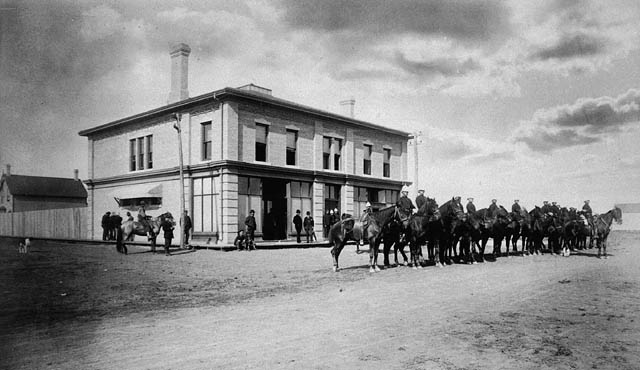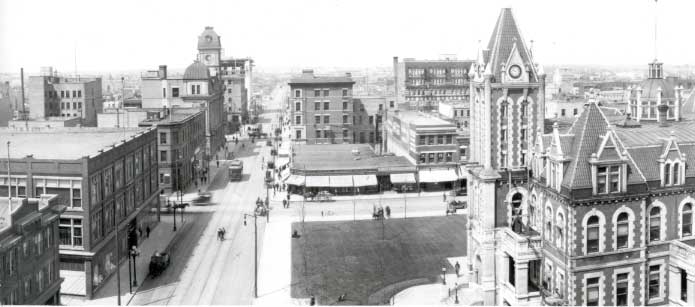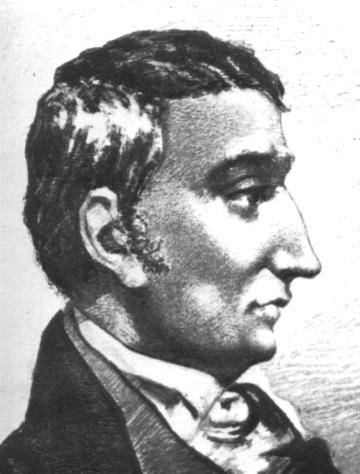|
Statement Of Principles (NDP)
The New Democratic Party's Statement of Principles was adopted in 1983 in Regina, Saskatchewan, Canada, at the 12th Federal NDP Convention. It replaced the Winnipeg Declaration, which had in turn replaced the original Regina Manifesto of 1933 of the Co-operative Commonwealth Federation (CCF) (the predecessor to the NDP). The preamble reads as follows: The New Democratic Party believes that the pursuit of peace and democratic socialism are the two imperatives of a more secure and just modern world. We believe that as peace must prevail over war, so must cooperation and mutual responsibility prevail over private gain and competition as the guiding principles of social and economic life. We seek a compassionate and caring society, servicing the needs of all. The New Democratic Party is proud to be part of that great worldwide movement of democratic socialist parties which have always striven to replace oppression and privilege with democracy and equality. See also * 1933 Regina Man ... [...More Info...] [...Related Items...] OR: [Wikipedia] [Google] [Baidu] |
New Democratic Party (Canada)
The New Democratic Party (NDP; french: Nouveau Parti démocratique, NPD) is a federal political party in Canada. Widely described as social democratic,The party is widely described as social democratic: * * * * * * * * * * * * the party occupies the left, to centre-left on the political spectrum, sitting to the left of the Liberal Party. The party was founded in 1961 by the Co-operative Commonwealth Federation (CCF) and the Canadian Labour Congress (CLC). The federal and provincial (or territorial) level NDPs are more integrated than other political parties in Canada, and have shared membership (except for the New Democratic Party of Quebec). The NDP has never won the largest share of seats at the federal level and thus has never formed government. From 2011 to 2015, it formed the Official Opposition, but apart from that, it has been the third or fourth-largest party in the House of Commons. However, the party has held considerable influence during periods ... [...More Info...] [...Related Items...] OR: [Wikipedia] [Google] [Baidu] |
Regina, Saskatchewan
Regina () is the capital city of the Canadian province of Saskatchewan. The city is the second-largest in the province, after Saskatoon, and is a commercial centre for southern Saskatchewan. As of the 2021 census, Regina had a city population of 226,404, and a Metropolitan Area population of 249,217. It is governed by Regina City Council. The city is surrounded by the Rural Municipality of Sherwood No. 159. Regina was previously the seat of government of the North-West Territories, of which the current provinces of Saskatchewan and Alberta originally formed part, and of the District of Assiniboia. The site was previously called Wascana ("Buffalo Bones" in Cree), but was renamed to Regina (Latin for "Queen") in 1882 in honour of Queen Victoria. This decision was made by Queen Victoria's daughter Princess Louise, who was the wife of the Governor General of Canada, the Marquess of Lorne. Unlike other planned cities in the Canadian West, on its treeless flat plain Regina h ... [...More Info...] [...Related Items...] OR: [Wikipedia] [Google] [Baidu] |
Canada
Canada is a country in North America. Its ten provinces and three territories extend from the Atlantic Ocean to the Pacific Ocean and northward into the Arctic Ocean, covering over , making it the world's second-largest country by total area. Its southern and western border with the United States, stretching , is the world's longest binational land border. Canada's capital is Ottawa, and its three largest metropolitan areas are Toronto, Montreal, and Vancouver. Indigenous peoples have continuously inhabited what is now Canada for thousands of years. Beginning in the 16th century, British and French expeditions explored and later settled along the Atlantic coast. As a consequence of various armed conflicts, France ceded nearly all of its colonies in North America in 1763. In 1867, with the union of three British North American colonies through Confederation, Canada was formed as a federal dominion of four provinces. This began an accretion of provinces and ... [...More Info...] [...Related Items...] OR: [Wikipedia] [Google] [Baidu] |
Winnipeg Declaration
The Winnipeg Declaration, sometimes referred to as the Winnipeg Manifesto, was the programme adopted by the Co-operative Commonwealth Federation (CCF) in Canada to replace the Regina Manifesto. Its full name is the "1956 Winnipeg Declaration of Principles of the Co-operative Commonwealth Federation," and it was adopted at the party's national convention held that year in Winnipeg, Manitoba. Evolution of party The declaration reflected the evolution of the party from socialism to a more moderate form of social democracy and Keynesian economics since its founding during the Great Depression. It also reflected the increased pragmatism that had coloured the party since it took power in the province of Saskatchewan. The anticommunist mood of the Cold War also caused the CCF to seek to moderate its stance. The CCF federal vice-president and future New Democratic Party leader, David Lewis, was instrumental in drafting the document and having it approved. From nationalization to mixed e ... [...More Info...] [...Related Items...] OR: [Wikipedia] [Google] [Baidu] |
Regina Manifesto
The Regina Manifesto was the programme of the Co-operative Commonwealth Federation (CCF) and was adopted at the first national convention of the CCF held in Regina, Saskatchewan, in 1933. The goal of the Regina Manifesto was to eradicate the system of capitalism and replace it with a planned socialist economy. The CCF was a Canadian democratic socialist party founded in 1932 by farmers, workers, and socialist groups against the backdrop of the Great Depression. The manifesto was largely written by members of the League for Social Reconstruction, particularly Frank Underhill and F. R. Scott, and called for "a planned and socialized economy in which our natural resources and principal means of production and distribution are owned, controlled and operated by the people." Specifically it called for the nationalization of transportation, communications, electrical power and other services. It called for a planned economy and a national banking system that would be "removed f ... [...More Info...] [...Related Items...] OR: [Wikipedia] [Google] [Baidu] |
Co-operative Commonwealth Federation
The Co-operative Commonwealth Federation (CCF; french: Fédération du Commonwealth Coopératif, FCC); from 1955 the Social Democratic Party of Canada (''french: Parti social démocratique du Canada''), was a federal democratic socialistThe following sources describe the CCF as a democratic socialist political party: * * * * * * and social-democraticThese sources describe the CCF as a social-democratic political party: * * * * * political party in Canada. The CCF was founded in 1932 in Calgary, Alberta, by a number of socialist, agrarian, co-operative, and labour groups, and the League for Social Reconstruction. In 1944, the CCF formed the first social-democratic government in North America when it was elected to form the provincial government in Saskatchewan. The full, but little used, name of the party was Co-operative Commonwealth Federation (Farmer-Labour-Socialist).Calgary Herald, August 1, 1932 In 1961, the CCF was succeeded by the New Democratic Party (NDP). ... [...More Info...] [...Related Items...] OR: [Wikipedia] [Google] [Baidu] |
Manifesto For An Independent Socialist Canada
The Manifesto for an Independent Socialist Canada was a document drafted by a leftist faction of Canada's New Democratic Party, known as the Waffle, in 1969. When that group briefly left the NDP between 1972 and 1974, it became their party's main programmatic statement. Manifesto positions The Manifesto for an Independent Socialist Canada is also known as the Waffle Manifesto. It outlined the Waffle's deep resentment of the "American Empire" and the organization's commitment to furthering the socialist cause in Canada within the template of a successful democracy. The manifesto also included the Waffle movement's feeling toward Quebec sovereignty. The Manifesto helped contribute to a debate on American control of the Canadian economy and particularly the extent of US ownership of Canadian business and resources and the emergence in Canada of a branch plant economy. The Liberal government of Prime Minister Pierre Trudeau instituted attempts to assert domestic economic control ... [...More Info...] [...Related Items...] OR: [Wikipedia] [Google] [Baidu] |
1983 In Canadian Politics
The year 1983 saw both the official beginning of the Internet and the first mobile cellular telephone call. Events January * January 1 – The migration of the ARPANET to Internet protocol suite, TCP/IP is officially completed (this is considered to be the beginning of the true Internet). * January 24 – Twenty-five members of the Red Brigades are sentenced to life imprisonment for the 1978 murder of Italian politician Aldo Moro. * January 25 ** High-ranking Nazism, Nazi war crime, war criminal Klaus Barbie is arrested in Bolivia. ** IRAS is launched from Vandenberg AFB, to conduct the world's first all-sky infrared survey from space. February * February 2 – Giovanni Vigliotto goes on trial on charges of polygamy involving 105 women. * February 3 – Prime Minister of Australia Malcolm Fraser is granted a double dissolution of both houses of parliament, for 1983 Australian federal election, elections on March 5, 1983. As Fraser is being granted the dissolution, Bill Hayden ... [...More Info...] [...Related Items...] OR: [Wikipedia] [Google] [Baidu] |
Political Statements
Politics (from , ) is the set of activities that are associated with making decisions in groups, or other forms of power relations among individuals, such as the distribution of resources or status. The branch of social science that studies politics and government is referred to as political science. It may be used positively in the context of a "political solution" which is compromising and nonviolent, or descriptively as "the art or science of government", but also often carries a negative connotation.. The concept has been defined in various ways, and different approaches have fundamentally differing views on whether it should be used extensively or limitedly, empirically or normatively, and on whether conflict or co-operation is more essential to it. A variety of methods are deployed in politics, which include promoting one's own political views among people, negotiation with other political subjects, making laws, and exercising internal and external force, including ... [...More Info...] [...Related Items...] OR: [Wikipedia] [Google] [Baidu] |
History Of Regina, Saskatchewan
The history of Regina, Saskatchewan, the capital of the Canadian province of Saskatchewan. Prior to the province's establishment, Regina served as the territorial headquarters of the then-North-West Territories and district headquarters of the territorial district of Assiniboia. 19th century Early settlement Regina was founded in 1882, when the Canadian Pacific Railway, then being built across western Canada, reached the site: by the time of the North-West Rebellion in 1885 the CPR had reached only Qu'Appelle, Saskatchewan, Qu'Appelle (then called Troy), some to the east of what became Regina. The Dominion Lands Act encouraged homesteaders to come to the area where they could purchase of land for $10. The city was originally known as "Pile of Bones"—the English translation of the Cree place name "oskana kâ-asastêki" (lit. ''"Bones, which are piled"'')—because of the large amounts of American Bison, buffalo bones on the banks of the Wascana Creek, a spring runoff channe ... [...More Info...] [...Related Items...] OR: [Wikipedia] [Google] [Baidu] |
History Of Socialism
The history of socialism has its origins in the 1789 French Revolution and the changes which it brought, although it has precedents in earlier movements and ideas. ''The Communist Manifesto'' was written by Karl Marx and Friedrich Engels in 1847-48 just before the Revolutions of 1848 swept Europe, expressing what they termed scientific socialism. In the last third of the 19th century parties dedicated to Democratic socialism arose in Europe, drawing mainly from Marxism. The Australian Labor Party was the world's first elected socialist party when it formed government in the Colony of Queensland for a week in 1899. In the first half of the 20th century, the Soviet Union and the communist parties of the Third International around the world mainly came to represent socialism in terms of the Soviet model of economic development and the creation of centrally planned economies directed by a state that owns all the means of production, although other trends condemned what they saw as th ... [...More Info...] [...Related Items...] OR: [Wikipedia] [Google] [Baidu] |
1983 In Politics
The year 1983 saw both the official beginning of the Internet and the first mobile cellular telephone call. Events January * January 1 – The migration of the ARPANET to TCP/IP is officially completed (this is considered to be the beginning of the true Internet). * January 24 – Twenty-five members of the Red Brigades are sentenced to life imprisonment for the 1978 murder of Italian politician Aldo Moro. * January 25 ** High-ranking Nazi war criminal Klaus Barbie is arrested in Bolivia. ** IRAS is launched from Vandenberg AFB, to conduct the world's first all-sky infrared survey from space. February * February 2 – Giovanni Vigliotto goes on trial on charges of polygamy involving 105 women. * February 3 – Prime Minister of Australia Malcolm Fraser is granted a double dissolution of both houses of parliament, for elections on March 5, 1983. As Fraser is being granted the dissolution, Bill Hayden resigns as leader of the Australian Labor Party, and in the subsequent lead ... [...More Info...] [...Related Items...] OR: [Wikipedia] [Google] [Baidu] |







